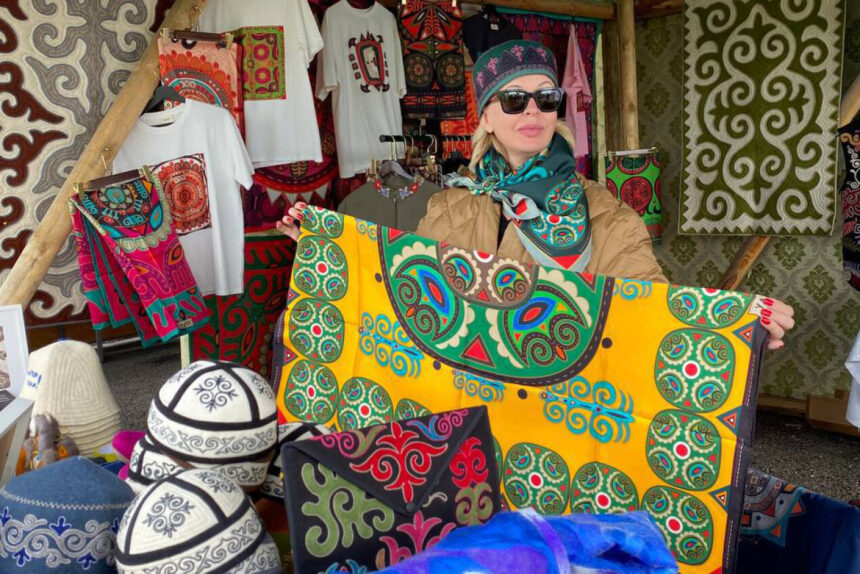A heated debate has erupted on social media over the Russian clothing brand YAKA, which produces garments featuring traditional Kyrgyz patterns, Holod reports on February 19th. The controversy began when the company claimed exclusive copyright over its designs, prompting backlash from the Kyrgyz community, who accused the brand of appropriating their cultural heritage. What started as a dispute over intellectual property soon escalated into a broader intercultural conflict.
It also offers shyrdaks, traditional Kyrgyz rugs that are often part of wedding dowries and are recognized by UNESCO as an element of intangible cultural heritage.
Read more: The Russian House in Baku Has Suspended its Operations
YAKA, known for incorporating ethnic motifs into its designs, recently released a collection featuring patterns deeply rooted in Kyrgyz traditions. When the company asserted its exclusive rights over these designs, many Kyrgyz people saw it as an attempt to claim ownership over elements of their cultural heritage.
According to its official website, YAKA was created “in honor of the 100th anniversary of the formation of the Kyrgyz Republic“.*
Outraged by what they perceived as cultural exploitation, critics took to social media to call out the brand for profiting from traditional symbols without proper recognition or collaboration with Kyrgyz artists. Some even accused YAKA of erasing the origins of these patterns, presenting them as its own invention.
As the backlash grew, the debate expanded beyond legal rights to deeper questions about cultural identity, respect, and ownership. Kyrgyz activists and designers argued that cultural heritage should not be treated as a commodity, while others emphasized the need for ethical collaborations when incorporating traditional elements into modern fashion.
In response, the brand’s owner, Anna Obydenova, defended her creation:
YAKA has never claimed a patent on Kyrgyz national patterns or ornaments because obtaining such a patent is fundamentally impossible. We have never submitted any such applications. Any brand in Kyrgyzstan that incorporates traditional patterns into its designs is aware of this, and we clarified it in our official statement. Copyright applies only to ornaments created by Kyrgyz designers within the framework of our contractual agreements with them.
The YAKA controversy highlights a recurring issue in the fashion industry: where is the line between inspiration and appropriation? Should brands be allowed to claim exclusive rights over designs inspired by traditional cultures? And how can companies ensure that their work respects the origins and significance of the symbols they use?

The discussion surrounding YAKA is far from over. The brand has yet to respond to mounting criticism, while Kyrgyz activists continue to demand recognition and respect for their cultural heritage. This case serves as another reminder that cultural elements are not just aesthetic choices—they carry history, meaning, and deep significance for the communities they belong to.
As the fashion industry grapples with these ethical dilemmas, one thing is clear: cultural heritage is not just a trend, and those who use it must do so with care and respect.
*In 2024, it marked 100 years since the establishment of the Kara-Kyrgyz Autonomous Region. In 1936, it became the Kyrgyz Soviet Socialist Republic, and Kyrgyzstan gained independence in 1991
Holod, Radio Liberty and agencies


Leave a Reply